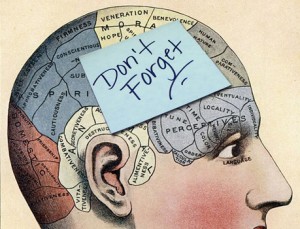Your brain, just like your heart, lungs, or biceps, is a muscle and becomes stronger when it is used regularly. You may be familiar with exercises that strengthen your biceps, or workouts that keep your heart strong, but you may not be as familiar with tips and tricks to keep your brain sharp and focused as well. Your brain is responsible for everything you do throughout the day, and has millions of different tasks to perform every minute. Below are a few ways you can keep the part of your brain responsible for memorization on point, which in turn will help you retain more information when you’re studying and when faced with the material on a test:
Sweat and Sleep 💤
Athletes who train for an event know that sleep and exercise are vital parts of their training. They know the importance of balancing hard work and rest. Training your brain is the same way. The first step in improving your memory is allowing your brain to rest. Sleep deprivation not only makes you sluggish and grumpy, it also puts a major gray cloud over creativity, problem-solving, and critical thinking skills. These skills are vital when studying and working, as they help your brain connect information in a way that makes sense to you. Scientifically, sleep is required for memory consolidation, and the “magic,” when it comes to improving memory function, happens when you’re in the deepest levels of sleep.
Make It Fun 😄
Many people think they have to spend money on “brain books” or spend hours hunched over a crossword puzzle or number puzzle to really give their brains an extra boost. However, a study from Harvard showed that people who have a fun and active social life had the slowest rate of memory decline. So instead of spending your Saturday nights solving word problems, hang out with the people you love and enjoy life. Creating and maintaining relationships is a great form of brain exercise. (And maybe having a lot of friends and having to remember all of their names may be another way to keep the “memorization station” in your brain working hard!)
Let Go Of The Stress 😌
If an active social life and laughter are friends of memory, then stress is the enemy. Chronic stress has been proven to destroy brain cells, which makes memorization, focus, creativity, and reasoning more difficult to do. Meditation, prayer, and other kinds of quiet, focused time helps the brain make stronger and more powerful connections, which is vital in improving memory.
Book Your Maths Tutor!
Booking a trial session and finding the perfect tutor for your child is a straightforward process at EzyMathTutoring.
Eat Right 🥦
Foods that are rich in Omega-3 fatty acids like fish, walnuts, and spinach have been shown to send the right messages to the brain to jumpstart critical thinking and memory. Fruit, veggies, and green tea are also great additions to your diet if you’re looking to naturally give your brain a boost. Drinking wine regularly (one glass a day for women, two for men) may actually improve cognition and memory. Red wine has resveratrol, an ingredient that reduces the risks for Alzheimer’s and increases blood flow to the brain. If you’re not a fan of red wine (or under age), grape juice, peanuts, and cranberry juice also have this power-packed ingredient.
Memory Boosting Tasks
- Trying something new puts your brain at high alert and allows you to take in new information and work parts of your brain that don’t normally have to work as hard.
- Get your senses involved. The more avenues information has to get to your brain, the better the chances are that you’ll remember it. Even just the act of writing something down greatly improves the chance that you won’t forget it.
- When you have a lot of specific things to remember, try grouping them. For instance, instead of trying to remember 15 things on a grocery list, break the list down into 3-4 categories, and you’ll have a much easier time recalling which items are in which category.
Puzzles, math games, and logic problems can be fun ways to keep your memory on point as well. There are plenty of free, online resources that you can use to test your memory and improve it.
When it comes to studying for a test, memorization is very important. Using some, or all, of these techniques may mean the difference between passing and failing a test. Now the real test: Can you remember the four different ways to improve your memory mentioned in this article? 🤔






